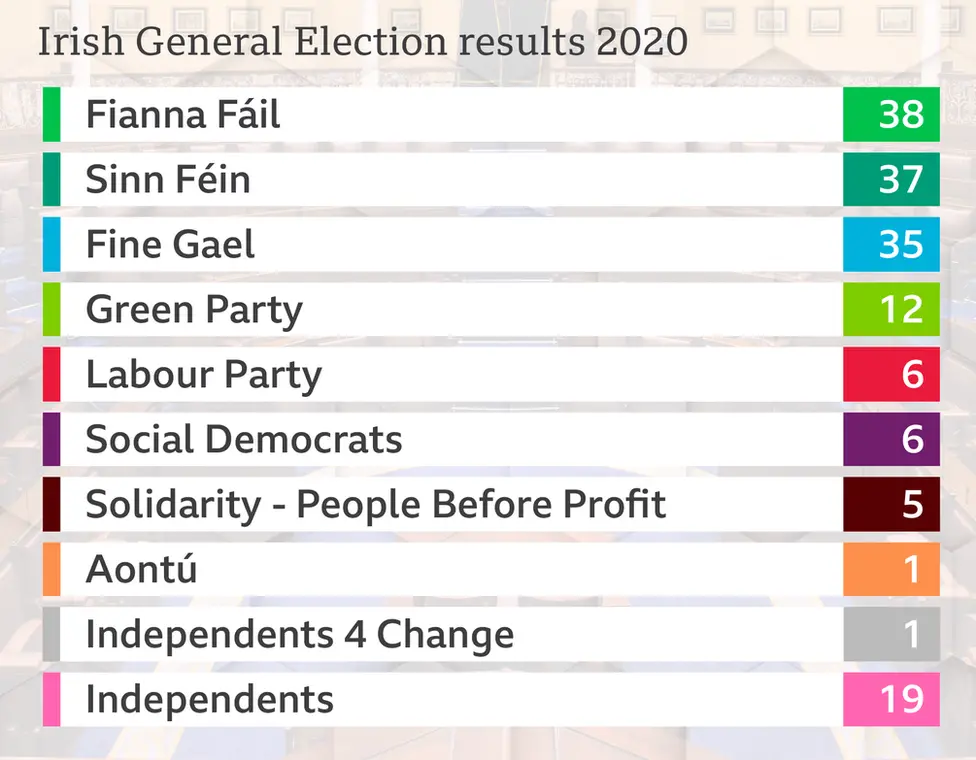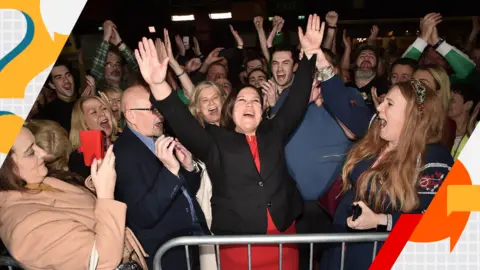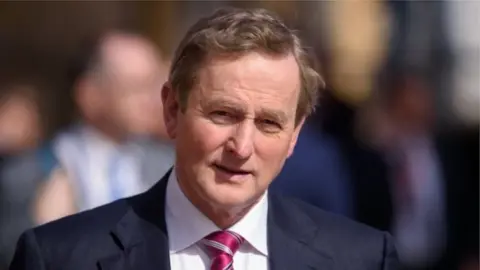Irish election: Sinn Féin criticises 'disgraceful' Fianna Fáil and Fine Gael
 BBC
BBCSinn Féin leader Mary Lou McDonald has criticised Fianna Fáil and Fine Gael's refusal to enter government talks with her party as "quite disgraceful".
Fianna Fáil said on Thursday that it would not enter talks with Sinn Féin.
All eyes are on the make-up of the next Dáil (Irish parliament) after an election that led to an historic surge for Sinn Féin.
Sinn Féin topped the first preference poll, but its total of 37 seats is one fewer than that of Fianna Fáil.
Fine Gael, whose leader Leo Varadkar led the previous government as taoiseach (prime minister), won 35 seats.
No single party has enough seats to govern.
Mrs McDonald said the "old boys club of Fianna Fáil and Fine Gael" were setting aside the "democratic mandate of Sinn Féin".
"I have no sense of entitlement for anything," she added.
"But I can tell you this much - the people who vote for us, the people we represent - hundreds of thousands of them - are entitled to respect."

Irish broadcaster RTÉ has reported that Mrs McDonald and Fianna Fáil leader Micheál Martin had a 15-minute phone conversation on Friday, in which she told him that "people voted for change and not a grand coalition between Fianna Fáil and Fine Gael".
She said that she would write to Mr Martin to set out the "substance" of Sinn Féin's position and would ask him to do the same.
Before the election, Mr Martin ruled out forming a coalition with Sinn Féin, citing its historic links to the IRA as a deterrent.
In the wake of Saturday's vote, he did not reject the two parties working together, but said "significant incompatibilities" existed.

On Thursday, BBC News NI understood that Fianna Fáil members agreed it should not enter government formation talks with Sinn Féin, but Mr Martin received backing to talk to other parties.
How many seats are required in the Dáil to form a government?
Eighty are required - and no single party has that number.
Even if Fianna Fáil and Sinn Féin agree to coalesce, they will not hit that magic number and will need to turn to either some of the smaller parties or independents to get them across the line.
That means there could be a lengthy wait to see the make-up of the next Irish government.
 Getty Images
Getty ImagesThat's not entirely unusual - it took 70 days for previous Taoiseach Enda Kenny to form a government in 2016.
In that government, it was agreed that Fianna Fáil would support Fine Gael on key votes in a confidence-and-supply agreement.
Earlier, a Fine Gael spokesperson said the numbers in the current Dáil did not support another confidence-and-supply deal.
The statement said confidence-and-supply arose in the last government as a last resort and was the only option left after Fianna Fáil rejected going into coalition.
It added that the onus was now on Sinn Féin to form a socialist republican government - after securing the largest number of votes.
